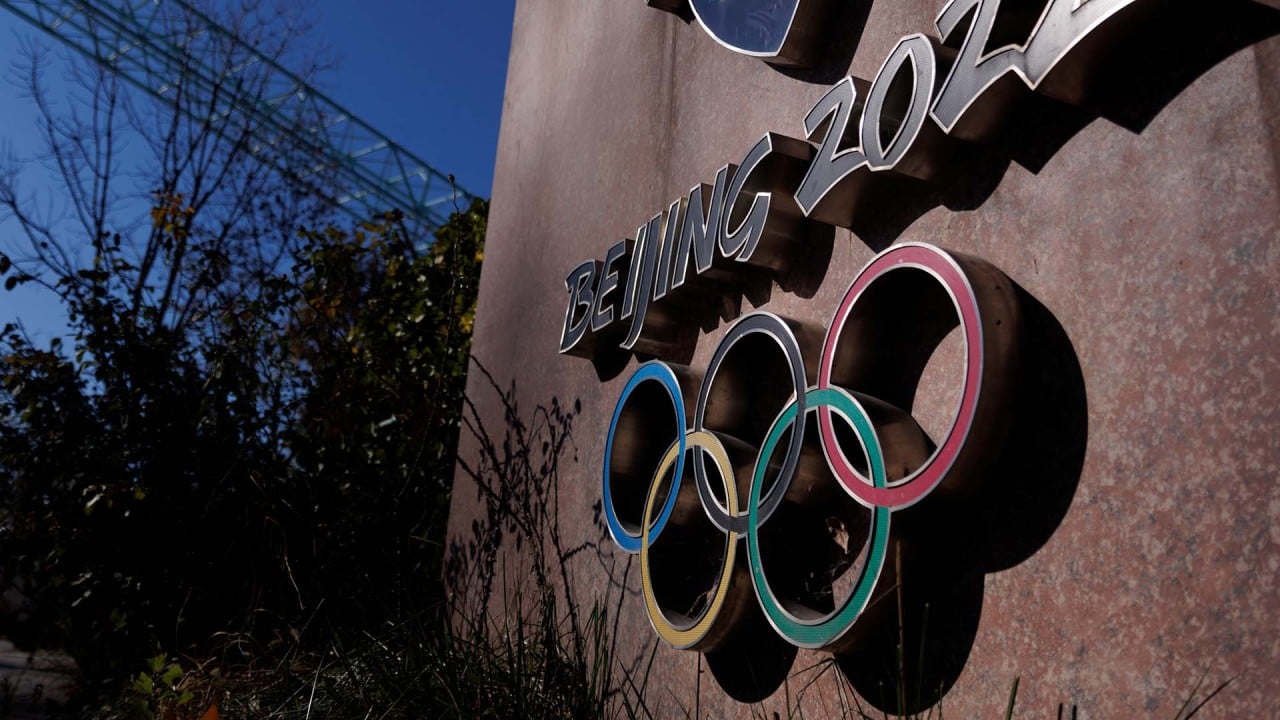
Americans favour diplomatic boycott of Olympics and view China negatively, Pew poll shows
- Almost 90 per cent of people surveyed in January see China as a competitor or an enemy
- ‘The shift is caused by China’s actions under Xi, the repression at home, the more aggressive approach abroad,’ says former US ambassador
Americans support a US diplomatic boycott of the Beijing Winter Olympics by a two-to-one margin – even though most are not versed in the details – while almost 90 per cent see China as a competitor or an enemy, according to a Pew Research report released on Tuesday.
The results dovetailed with a host of polls in recent years as Americans and residents of other developed nations grow increasingly wary of a more assertive China. Tuesday’s report was in line with Americans’ view over the past year: 54 per cent saw China as a competitor, 35 per cent as an enemy and 9 per cent as a partner.
“It doesn’t surprise me. It’s really turned in recent years,” said Winston Lord, a US ambassador to China in the 1980s. “I think it’s somewhat encouraging that more people say competitor before enemy. It shows some realism, that they don’t want an outright enemy.”
Under a diplomatic boycott, US government officials or representatives will not attend the Games. The United Kingdom, Australia, Canada and Denmark have joined the official protest, while other countries said they would not attend even as they stopped short of mentioning human rights.
“For a boycott or embargo to be successful, you have to have a certain amount of totality,” said Philip D’Agati, author of Cold War and the 1984 Olympic Games: A Soviet-American Surrogate War. “It’s impossible to boycott without pain to your own athletes, TV contracts, sponsors.”
While a plurality of the 5,128 American adults surveyed by Pew from January 10-17 favoured a diplomatic boycott, the issue has captured limited public attention. Over 90 per cent said they had heard little or nothing about the boycott. Support for the move was also remarkably consistent across the normally divided US political spectrum.
What does US boycott of Winter Olympics mean, and will it achieve anything?
Lord, who accompanied president Richard Nixon when he visited Beijing a half-century ago, said China bore significant responsibility for the increasingly negative feelings many people have toward China under President Xi Jinping.
“The shift is caused by China’s actions under Xi, the repression at home, the more aggressive approach abroad and intrusions in societies, including our own,” he said. “It’s turned off not only Americans, but also Europeans and Australians.
“Everyone talks about how brilliant XI is and how he’s advanced China, and in some ways that’s true, but it has come at a cost.”
The survey also found that Americans’ confidence in Biden’s handling of relations with China has fallen over the past year, in line with his overall job approval. Just 39 per cent of those polled said they have confidence in his ability to deal effectively with China, down from 53 per cent in early 2021.
Negative views continue to dominate China’s global image, survey finds
In surveys last year, Pew found that people in 17 advanced economies held a negative view of China, with unfavourable views at or near historic highs. Most cited human rights or concern that Beijing did not respect the personal freedoms of its people.
As in most countries, however, foreign affairs in China are a distant second to domestic policy and social order.
In recent weeks, as the spotlight on China’s human rights record has intensified in advance of the Games, Beijing has threatened undisclosed “consequences” for countries carrying out a diplomatic boycott. It has also warned athletes not to speak out individually, alleging that the US plans to pay athletes to “sabotage” the Games.
“The credibility of this narrative to an American audience is not what matters to the Chinese government,” said Sarah Kreps, a Cornell University professor and former US intelligence analyst.

“This narrative will be credible to the domestic population,” she added, in part because China’s state-controlled media does not leave much room for doubt or alternative views.
On Monday, members of the Congressional-Executive Commission on China – an independent US agency that monitors human rights – released a letter to the US Olympic and Paralympic Committee urging it to protect athletes’ free speech and data privacy, citing a Chinese official’s recent warning of “punishment” for athletes who speak out.
“We share the wish that athletes from the United States and all countries will be able to pursue their Olympic dreams in Beijing free from interference,” it said.
Chinese ambassador warns US its strengthened Taiwan ties could lead to war
“We let people get access to different information,” Qin said. “On the other hand, we bear in mind the general interests of the public.”
The time Uygurs spend in camps or otherwise detained is meant to give them skills and counter extremism, he said.
“We give them a chance,” Qin added. “We use a measure to correct them. It’s what we call a preventive measure.”


